How are you, friends? Today I am recording a new video for YouTube, in which I will tell you how to win at low stakes. I'll be playing four tables of PLO100 on the WSOP site and discussing the most common mistakes and concepts among PLO100 players that help us make the right decisions.
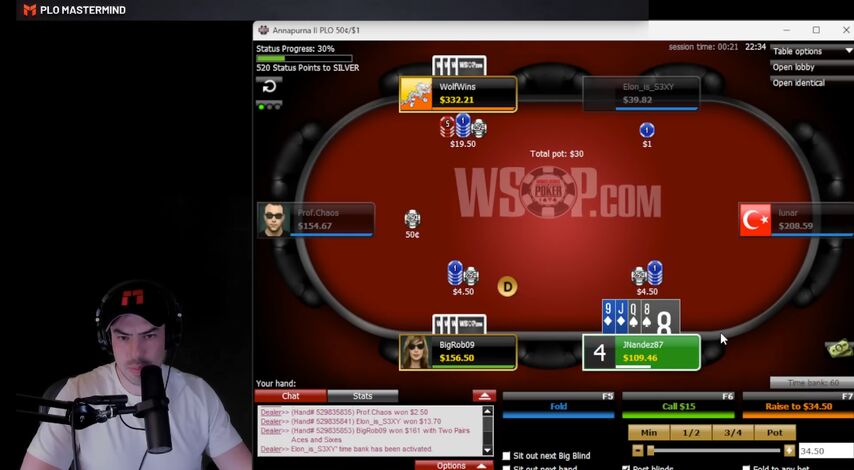
Of course, I call the squeeze.
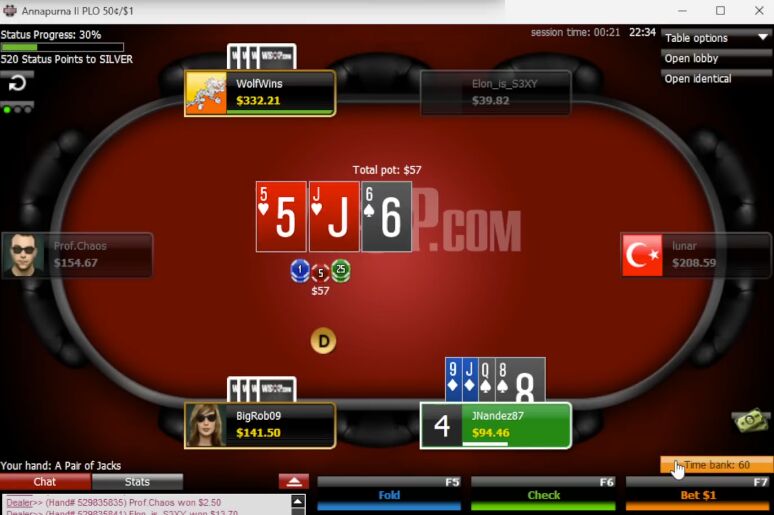
Squeezer checked. My hand is not strong enough to bet as it is very bad in a possible triple all-in, but against one opponent you can continue.
Checks, button bets pot, big blind folds.
We have enough equity to get it all in right away, but I'll call with the idea of folding if a heart hits. Seems to be OK.
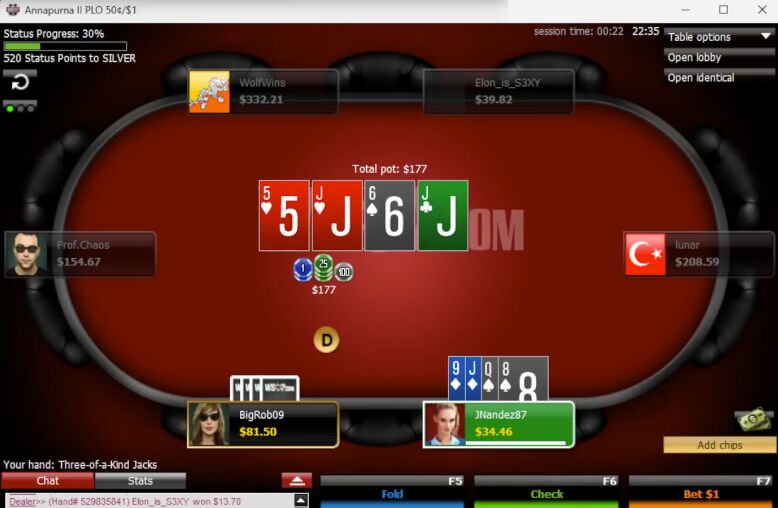
Great turn, you can bet the last $34.
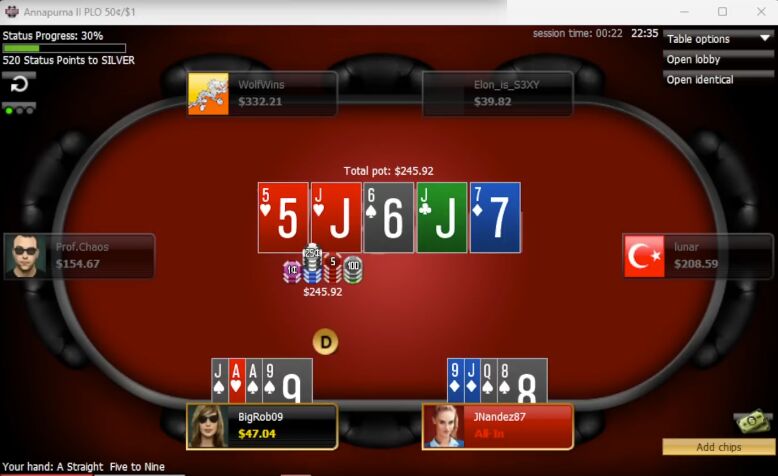
Haha, wow! Great start for the video! The guy on the button called a squeeze with some really good aces and then we both made trips on the turn, but I was saved by a rivered straight. An amazing start, which once again shows how unconventional opponents can play at low stakes. I think the same atmosphere can be seen in the home game or at stakes up to $2/$5 offline. A lot of limpers, a lot of strange lines that are not based on theory, but rather on practice.
When we choose between checking and betting in Omaha, there are often arguments for and against it. Our decision seems to be forced for different reasons. Some hands benefit from taking a free card, but betting is also beneficial as they block your opponent's continuation range. To confidently navigate which of these forces is more important, you need to work a lot with the solver or with the trainer. In this video, I will try to explain in detail my decisions in such situations.
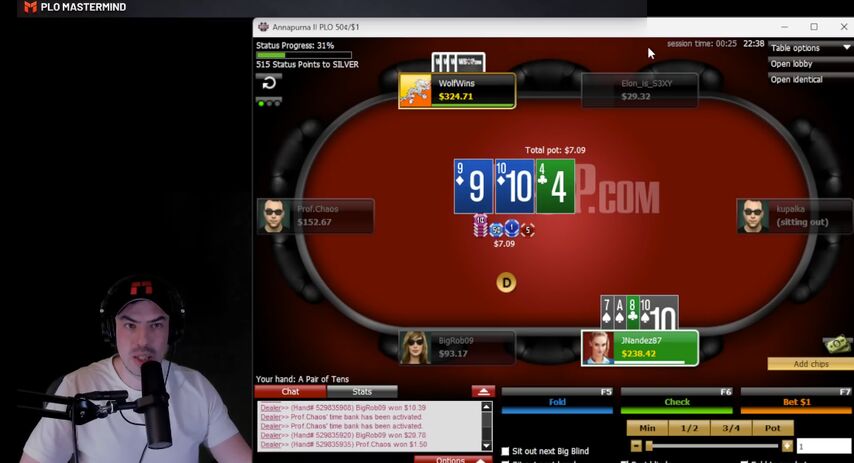
Here, for example, we are choosing between c-bet and check. We have top pair and an open-ended straight draw. We can take the free turn, which will reveal the strength or weakness of our combination, but we can also bet to protect against overcards. So, I can’t argue anymore, the time for a move is running out – this is a check.
An important argument in favor of checking is that it is very unpleasant for us to get check-raised. Another thing is that checking is often good with hands that change dramatically in strength on different turns. The EV of some turns is so high that it outweighs the EV of bets on the flop. For example, when we have a strong backdoor flush draw or our overcards are good, clean two-pair outs, it's usually to our advantage to see the turn for free, avoiding the risk of folding a promising hand to a check-raise.
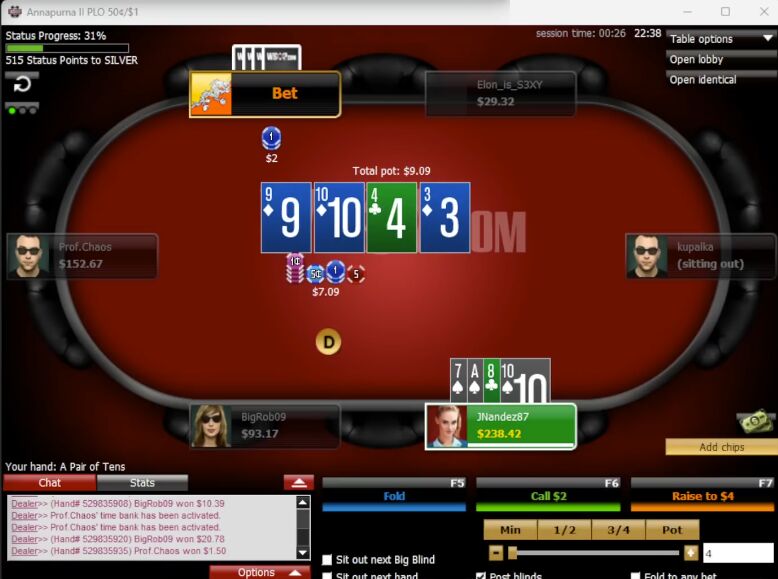
An unpleasant card, but at this size, it's a call.
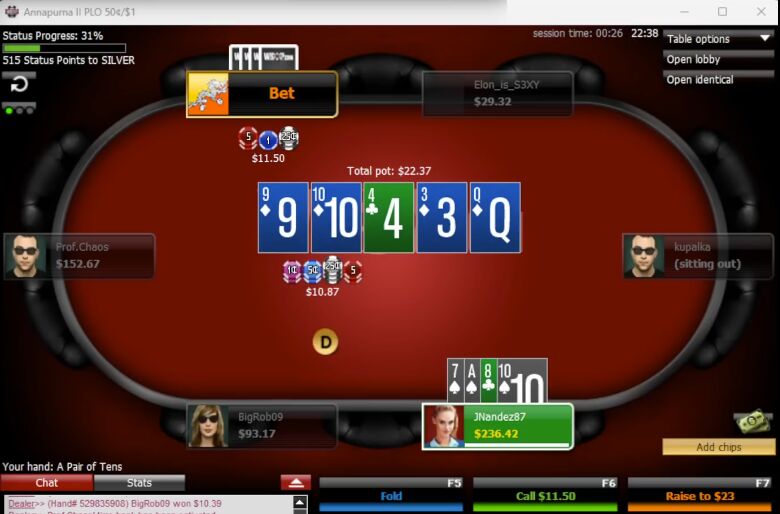
And now, of course, fold.
At low stakes online and live, all you need to do to get a big edge over the field is to enter the pot with the correct range. The importance of preflop play is underestimated by many. Low-stakes players rarely have the patience to wait for a good hand. Even those of them who know how to play preflop correctly quite often do not want to follow the recommendations of the solver and go out of range. Playing with a VPIP of 22-24% is simply boring for them.
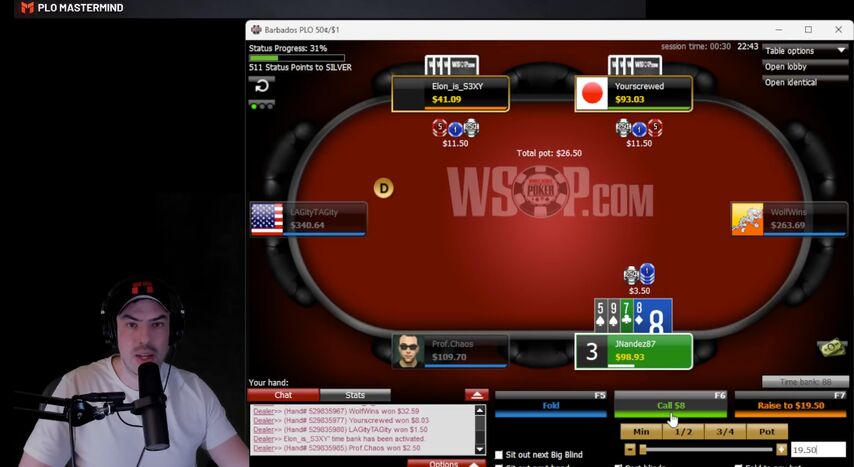
I made a marginal raise from middle position. A player with a 50bb stack 3bets in the SB, the BB calls. I'll call it too.
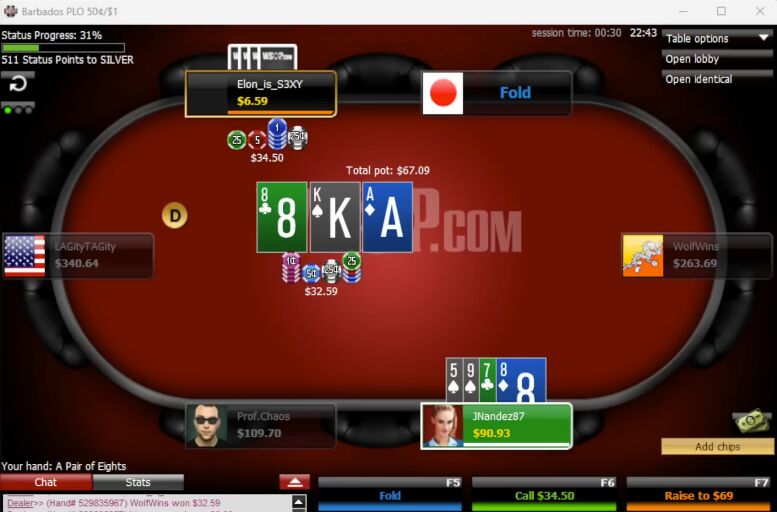
On the flop, the small blind immediately bets the pot, the BB folds. The ratio of the pot to the effective stack on the flop is a little more than one, that is, for a call, we need not 33%, but somewhere around 35%. Of course, we don’t have them, so we pass.
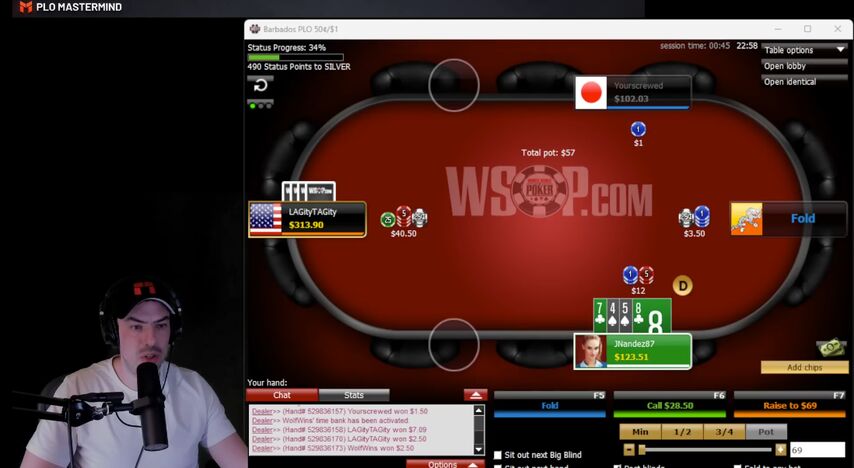
It's not usually worth 3-betting with this hand, it's just that I wanted some action and I doubt this lineup will penalize me for extending my 3-betting range a little.
A cold 4-bet comes from the small blind. A very simple call.
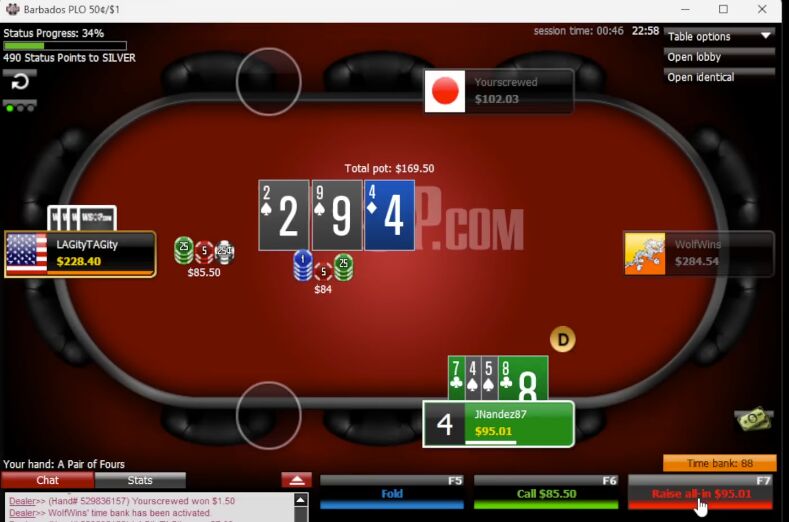
Good flop, you can call.
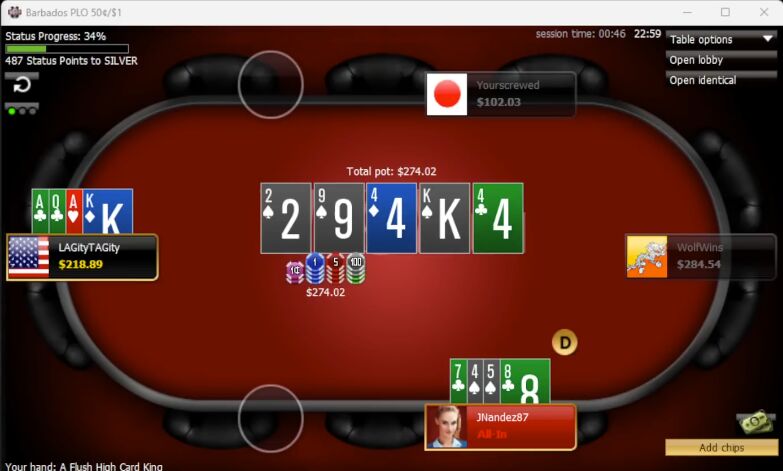
And a sure victory, the pot of $274 is coming to us.
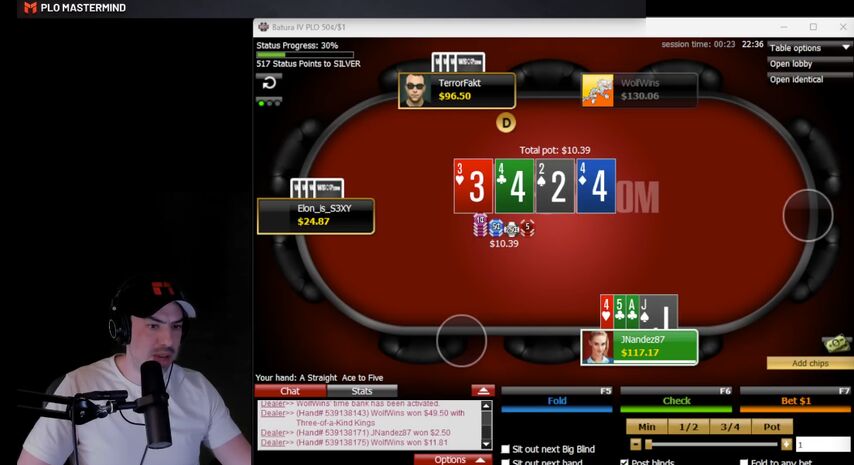
Here I defended the big blind against two people. The texture of the flop is suitable for a lead, but I preferred to check because I don’t have three streets of value – by the river bet from will usually be too thin. These are the things you need to think about when you decide whether to build the pot or check.
Bets half the pot, both opponents fold.
We need to be very selective about the hands we continue with on flops and turns. Quite often, it's more profitable for us to fold right away. Common mistakes are calling the flop too wide and giving up too often, and c-betting a wide range too often without knowing what cards to continue with, which also usually leads to folds on later streets. Playing this style, we lose a lot of small pots. In general, don't build the pot without a clear reason.
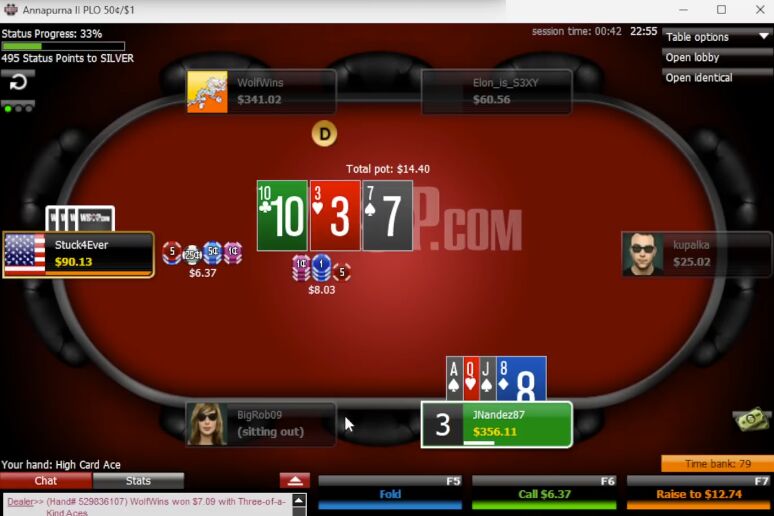
We raised preflop, and got one call from a player in position. Is our hand good enough to check-call on the flop? I think check-call is fine with the nut gutshot and the nut backdoor flush.
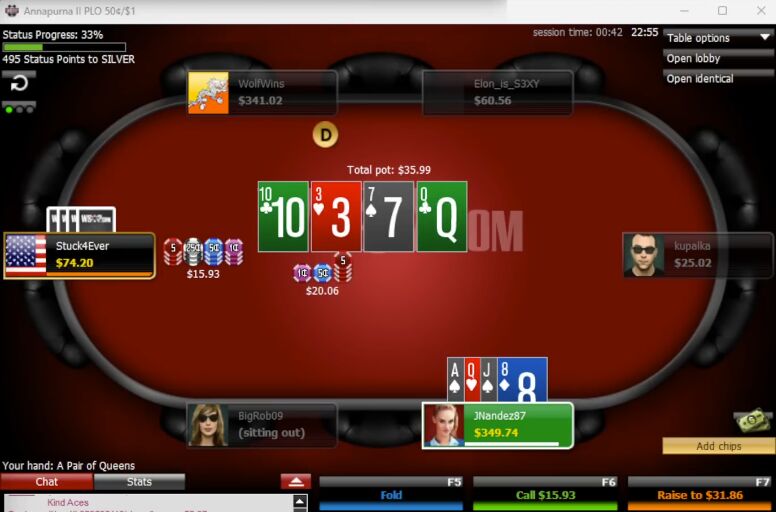
The opponent continues to barrel. What kind of hands will he play like that? , , , combo draw with a club. We are behind their range, but the price is right and we can call.
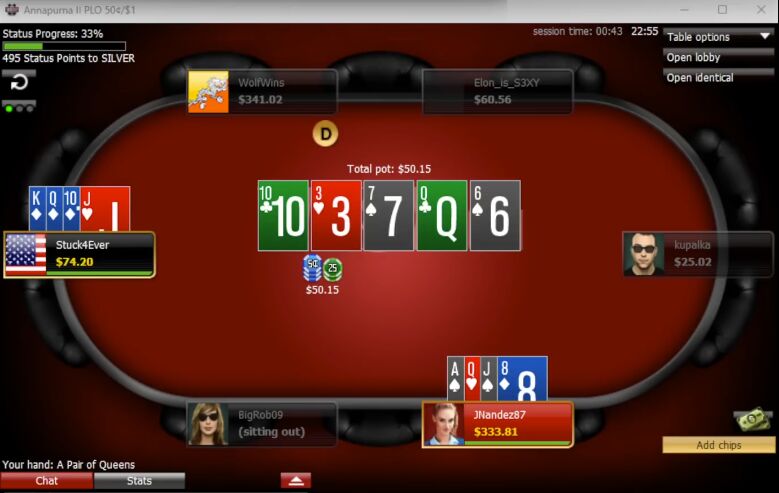
River played check-check. The opponent's hand didn't surprise us, and we played pretty standard.
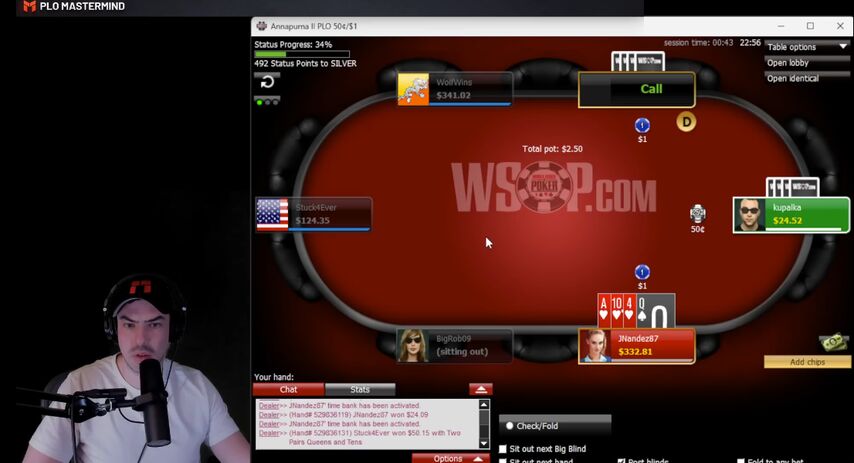
The button with a 60bb stack is limping – by the way, you usually shouldn't do that. Not every player limps 80% of hands, and isolating raises should usually be done with care. In a normal situation, our hand is not particularly suitable for raising. However, we seem to have already seen him limp. with one suit. This range should be punished.
Raises to $4, button calls, small blind folds.
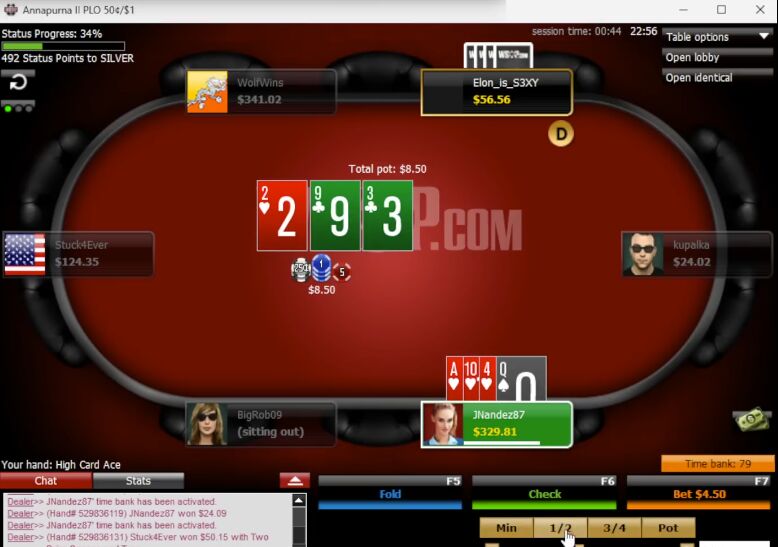
A check doesn't do our hand any good. We can't check-call, and if we get called, we have good turns.
Bet $5.50. Villain calls quickly.
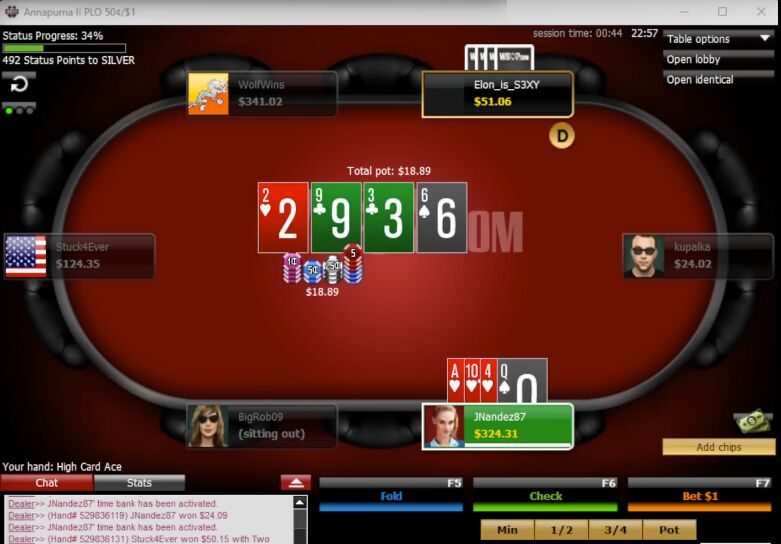
Six is not the best card for us. rarely in our range, it will be problematic to convince the opponent that we have a straight. And if we bet and get called, it is completely unclear which rivers to bluff and which ones not to. We don’t have suitable blockers – why not consider the four as such?
Checks and folds to a $17 bet.
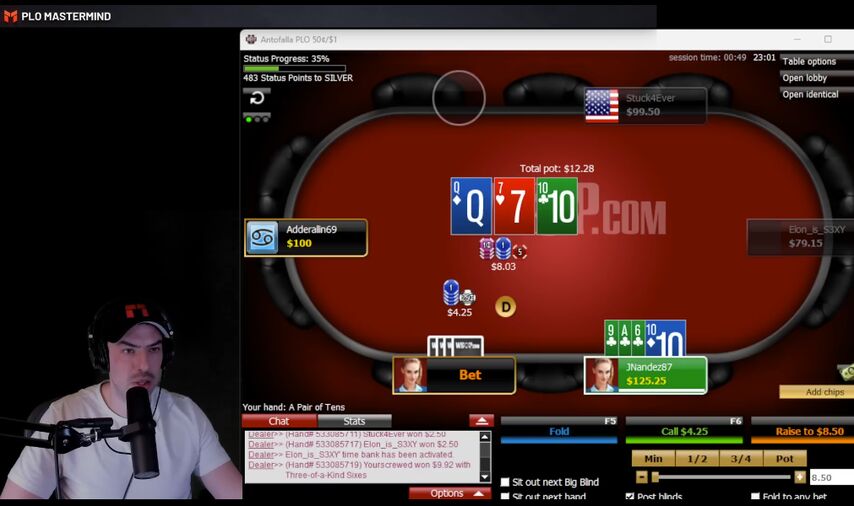
I raised preflop, the button called, the blinds folded. The flop is the standard check. He now bets about half the pot. I have second pair, a gutshot, nut backdoor flush draw. I think both decisions are close, calling doesn't look much better than folding, but the hand itself seems too good to give up right away.
Calls.
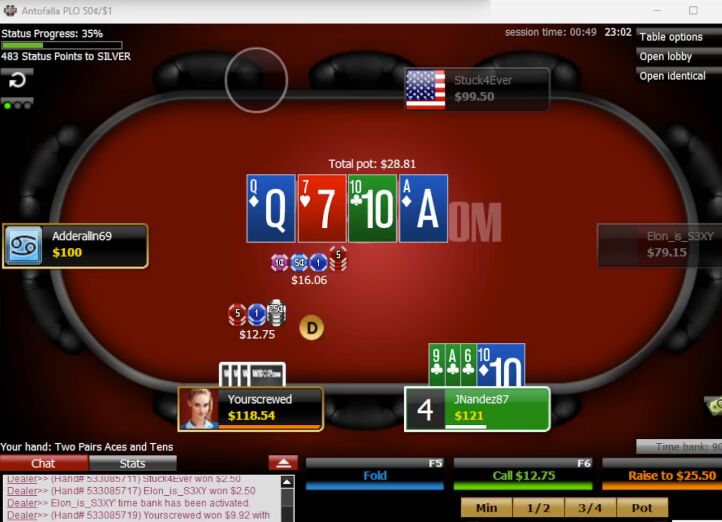
Big second barrel on the ace... We beat , however, people often make the mistake of not barreling kings and hitting some straight draws, which aren't very many either. I'll fold it. We are far behind the value range, we are not blocking value, and we cannot call the third barrel without improving. Playing call-call-fold is a mistake, it's better to fold early.
Folds.
The strategy of low-stakes players tends to be different in that they don't even try to defend their checks on all streets. After checking the flop, turn, or river, they usually overfold, so we have the right to play more aggressively than against the solver. Sounds pretty primitive, but it works. Of course, this has a downside: the ranges of active lines are stronger here, and opponents are not inclined to fold to counter aggression.
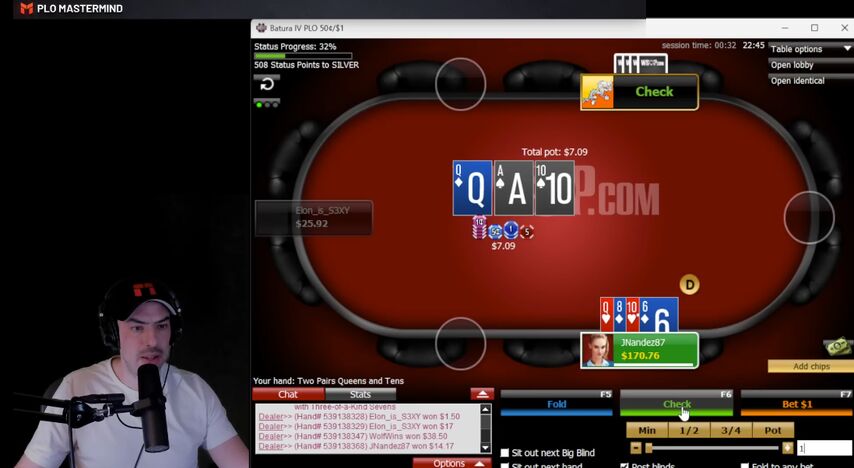
We raised from the button and the BB defended. I don't see the point in c-betting, it's unlikely that we'll get enough calls from weaker hands. Also, if Villain does call with or a flush draw, he will often either bet us out or bluff us on the later streets, since our hand is not very suitable for catching a bluff. Let's check.
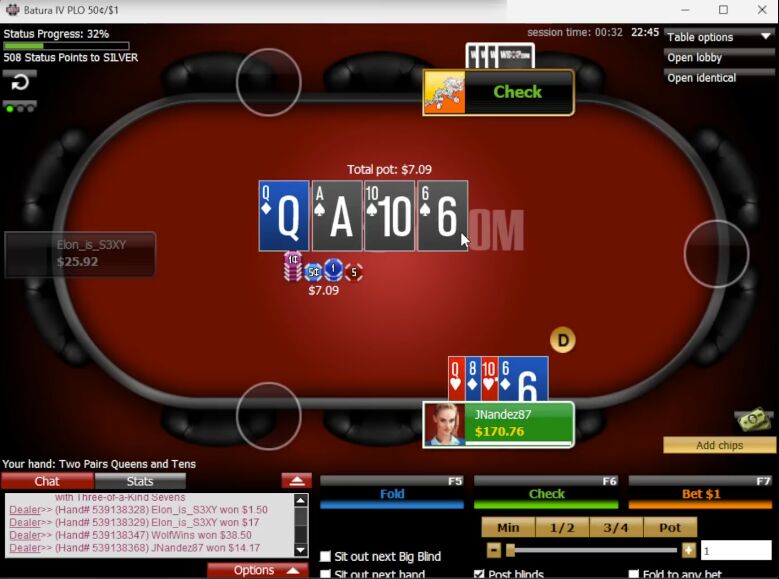
I check again.
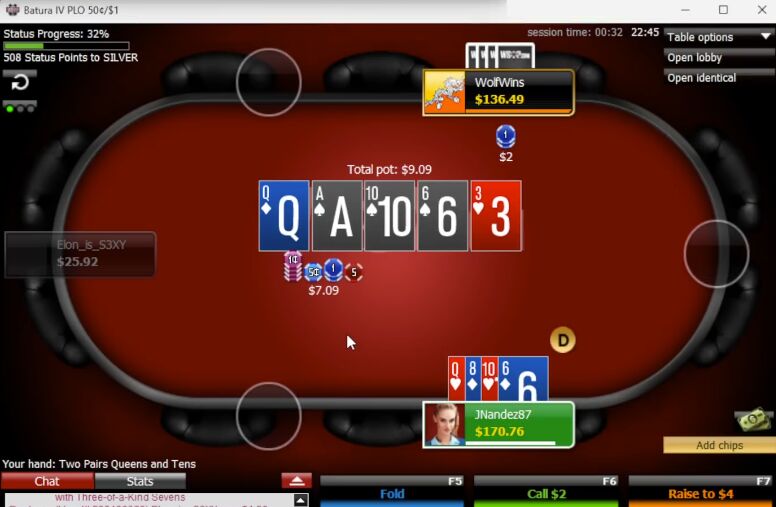
A very small bet. This can be made with any two pair and a straight, so we get beaten by quite a few hands. However, we don't need to win often to make a positive call, so calling here is fine in my opinion. Since we have three pair, we are blocking many combinations of two pair. Villain will often bluff here with one pair.
Calls and loses .
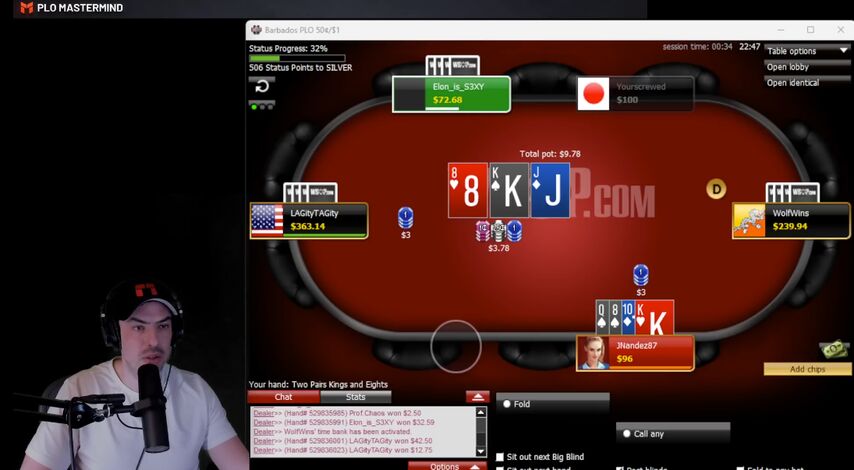
In a limped pot, I bet into three opponents with a strong hand. This is an important principle for low stakes and live games: with strong hands in multiway pots, we should often lead. Don't check monsters in anticipation of a continuation bet from a preflop raiser. In a multiway pot, he's not interested in c-betting wide.
Everyone calls.
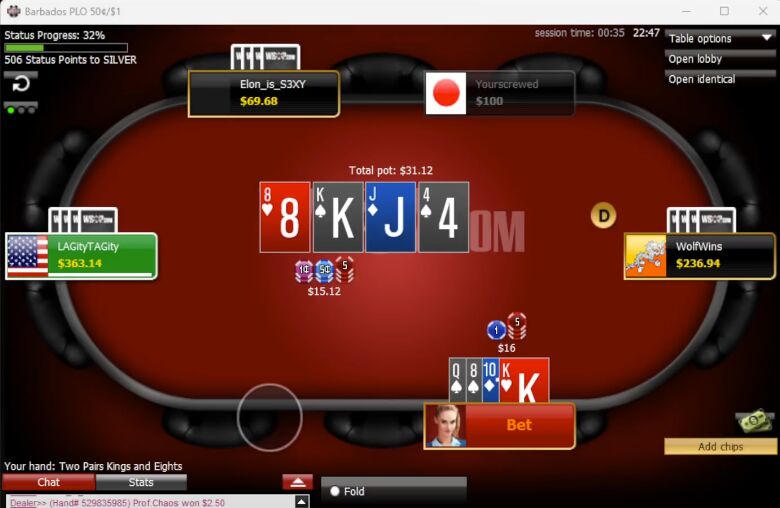
Only the button calls.
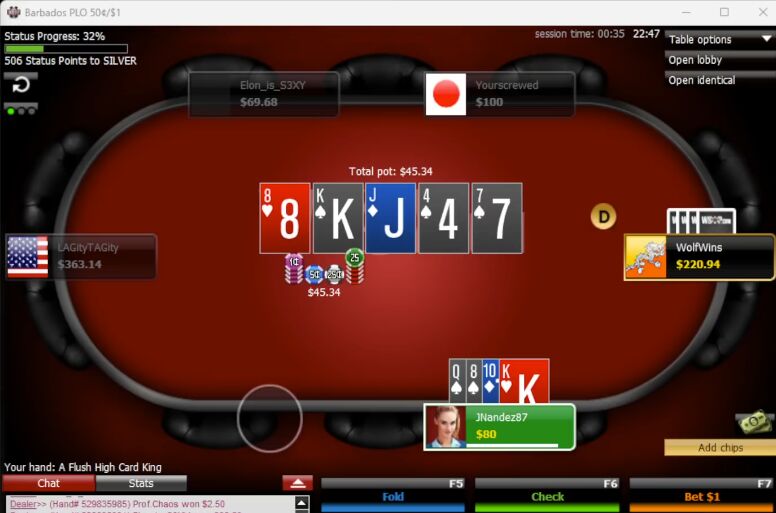
On the river we have the second nuts, how do we play? Check-call? Bet? So... did not get there, did. Of course, they could have a flush with jack or a ten... There are a lot of weaker flushes in his range that will want to draw, so we don't lose anything against them by checking. But missed draws with a jack or a ten of spades can put in a bluff if we check. In general, I like the check.
Checks, Villain bets $36.
A fairly large sizing, it makes no sense to raise against him.
Calls and beats .
Excellent – exactly the hand that I called!
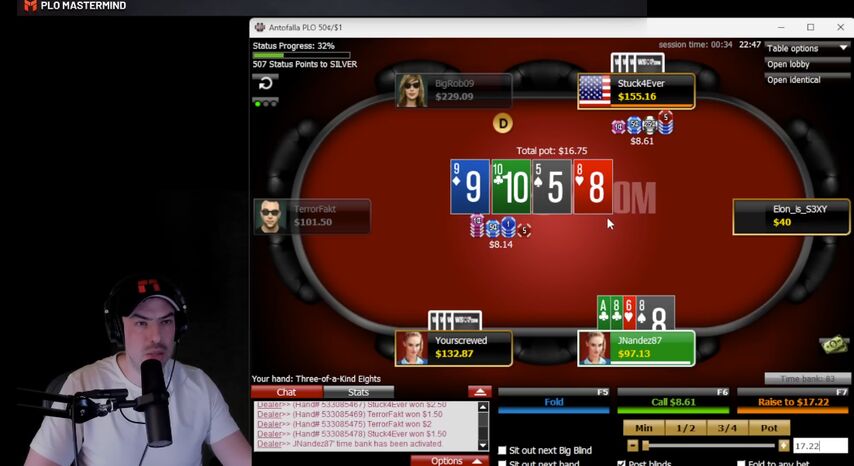
Interesting spot. The flop is checked, and the small blind bets the full pot on the turn. We beat and , but there's another player behind me... I think I'll fold conservatively.
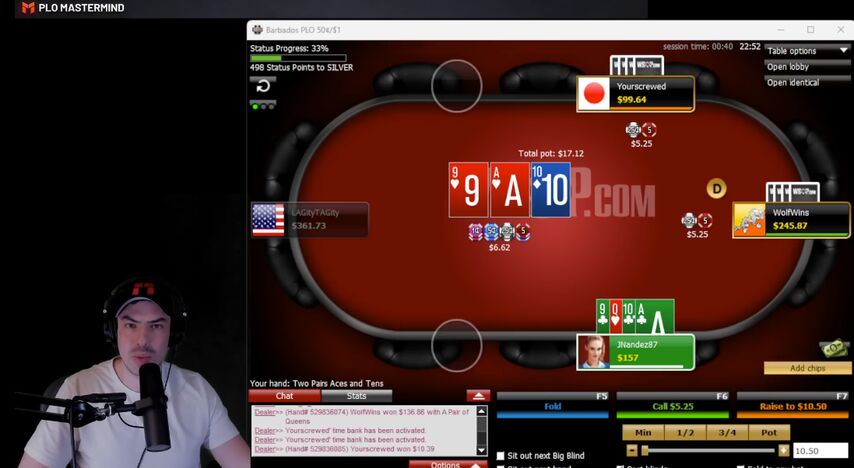
I called the min-raise in the small blind, and the flop came up with an interesting situation. I think the solver would raise and fold to a 3-bet. But I don't like that if I get called on a raise, there are very few good turns. I'll probably just call.
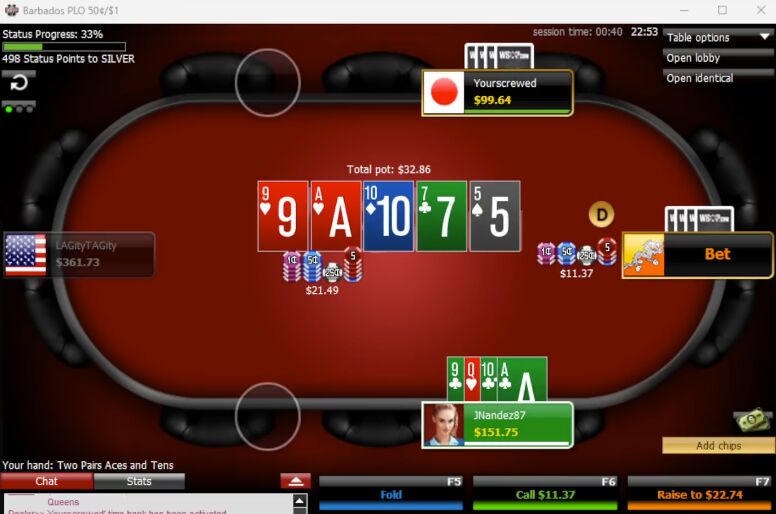
The turn was checked, and on the river, the button bet half the pot. and got there, but the button shouldn't have , as it checked last on the turn. He represents and possibly sets. I wonder if he would check with on the turn?
I'm afraid his timing and especially his sizing point to a total lack of bluffs, which is pretty disappointing since I'm about to call. You need to win 25% of the time. I don't even know... Write in the comments what you think about this call!
Calls, cutoff folds, button wins with .
I think the button, with the nut flush draw, should bet the turn.
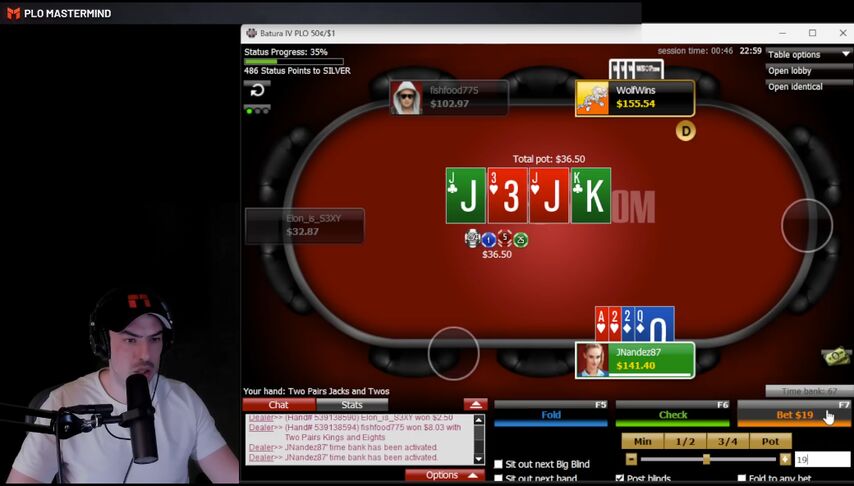
We 3-bet from the small blind and got called by the button, who then called a continuation bet. Should I barrel here? I think I'll bet it again. It's bad that we don't have a single club, and we block queens – the situation is not ideal, and you can check. However, both solutions seem close to me, and if so, it is usually worth deviating towards aggression. This is, of course, a rough generalization and should not be applied in all cases, but it usually works.
Bets $19, Villain quickly folds.
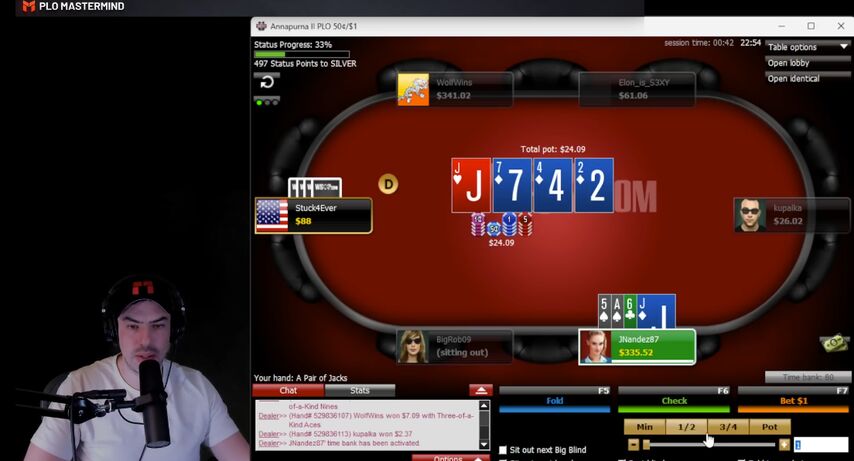
We called the 3-bet and the flop was checked. Great situation for a bluff! Yes, the free river is quite valuable for us – we can improve to two pair or a straight, but the check of opponents in such situations is very weakly protected.
He bets $19 and takes the pot.
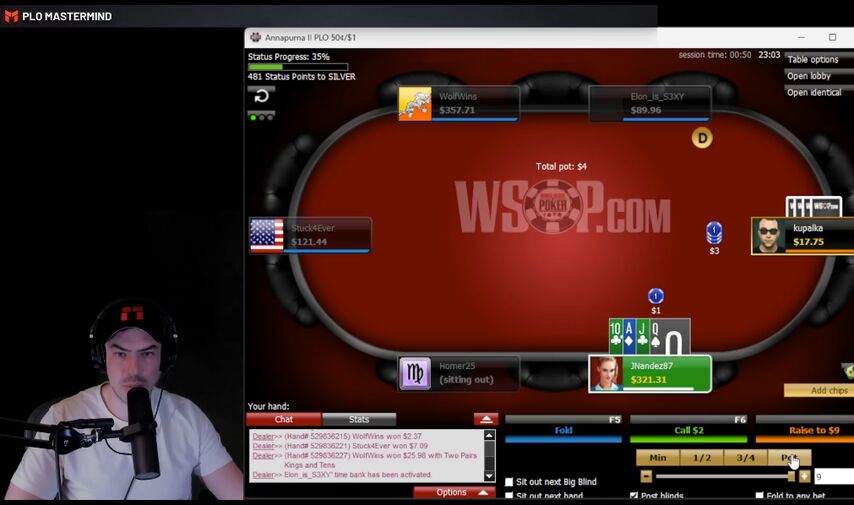
A player with a very short stack opens blind for blind. Of course, I 3-bet.
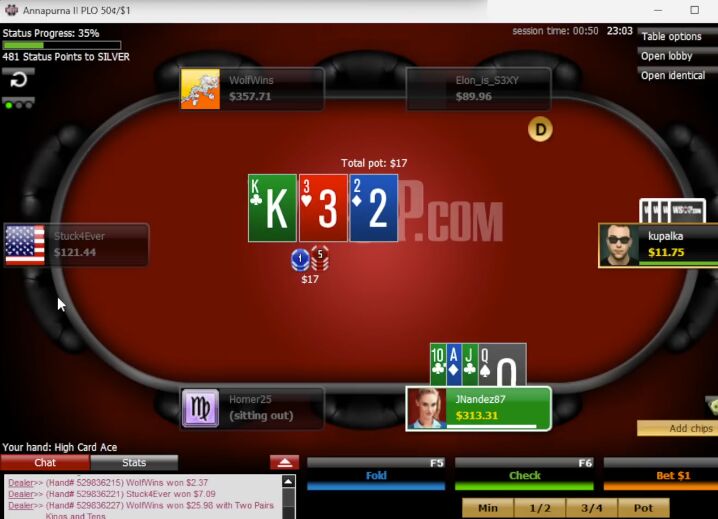
He checks. Push or check next? I like to check – my hand is very dependent on the turn, and on many turns, it will become quite strong, but on others – an offsuit 4 for example – it will become completely hopeless.
Comes out on the turn . Villain looks like he's done – he spends all his time, checks, and instantly folds to an all-in.
That's all for today. Hope you enjoyed this video. See you soon!











